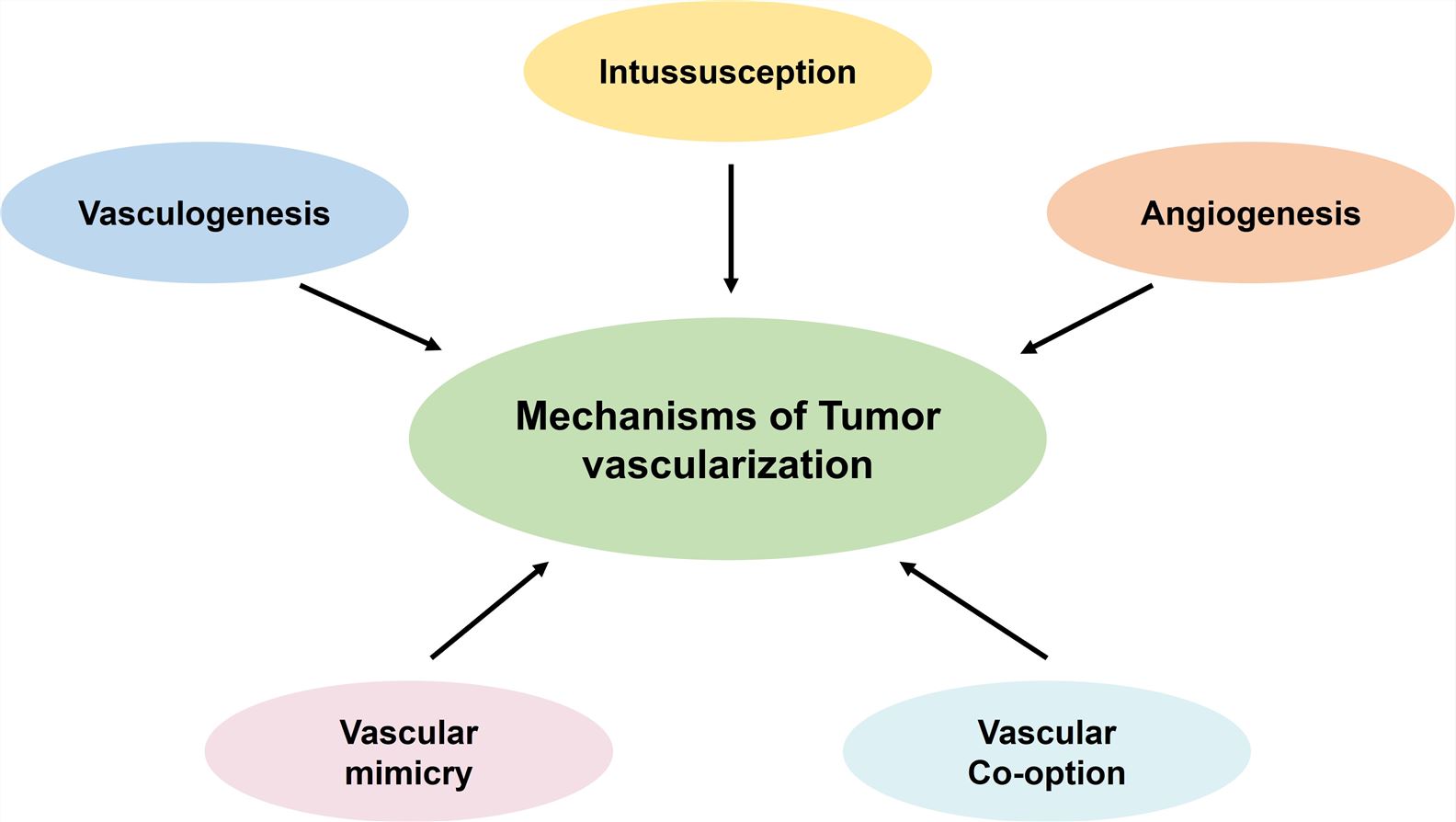Vascularization refers to the formation and development of blood vessels in tissues. There are several modes of vascularization, each describing different mechanisms by which blood vessels are formed and organized. Here are some key modes of vascularization:
- Angiogenesis: New blood vessels sprout from preexisting vessels. Endothelial cells extend outwards from existing vessels, forming new capillaries.
- Vasculogenesis: Progenitor cells differentiate into endothelial cells, assembling to create entirely new vessels.
- Intussusception: Existing vessels split into two through the insertion of tissue pillars.
- Vascular mimicry: Tumor cells create vessel-like networks, contributing to the blood supply in a non-traditional way.
- Vascular Co-option: Tumor cells surround and incorporate existing blood vessels into their structure, leveraging the preexisting vascular network.
 Figure 1. Modes of vascularization.
Figure 1. Modes of vascularization.
In vitro assays for tumor vascularization contribute significantly to our understanding of angiogenic processes, providing valuable tools for both basic research and the development of novel cancer therapies.
- Drug Screening: Testing potential anti-angiogenic drugs or therapies that target tumor blood vessel formation.
- Mechanistic Studies: Identifying molecular pathways and factors that regulate angiogenesis in the context of tumors.
- Target Identification: By studying the interactions between tumor cells and endothelial cells in vitro, researchers can identify specific molecules and signaling pathways critical for tumor vascularization that may serve as targets for intervention.
Creative Bioarray provides customized in vitro assays for tumor vascularization, offering tailored services that include personalized assay design, expert execution, and the provision of essential components such as cell lines, matrices, growth factors, and comprehensive outcome analysis.
* For scientific research only
 Figure 1. Modes of vascularization.
Figure 1. Modes of vascularization.